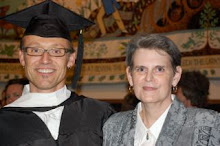Health care reform in light of a culture of perfection and the concept of interbeing.
Amongst my facebook community I have been sensing a great deal of tension regarding the recent passage of Health Care Reform. It has left me wondering what has happened to social discourse in our culture. Is our 2 party political system the source of dualistic thinking, or is it something more deeply embedded in our development as a nation? I don’t have the answers but the question seems worth exploring.
What I have been hearing is a great number of people are upset that this legislation is not perfect. I’ve been pondering perfection quite a lot lately. So I thought a theological perspective on perfection might help guide my inquiry.
Recently I wrote in my thesis, “I do not expect my work to come out perfect, perfect is a construct of my mind. If I waited until I could make perfect art I would still be waiting. I would wait until life passed. I make art in the fullness of the spirit that whatever I make is going to take shape the way it was intended, that is if I listen and attend to it appropriately.”
While pondering my understanding of the limits of our human nature in regard to perfection I ran across the following editorial in the New York Times.
To the Editor:
As a medical student from 1937 to 1941, I campaigned vigorously for what became the Murray-Wagner-Dingell bill, introduced in Congress in 1943 during Franklin D. Roosevelt’s presidency. The bill called for the establishment of a national health program.
In spite of strong public support, the bill failed to pass. I was disappointed again when other presidents, including, Truman, Nixon, and Clinton, attempted to have a national health program passed but met with failure.
I have had the good fortune to live beyond my 93rd birthday so that I can witness, finally, the passage of a national health program. I congratulate President Obama and all his colleagues for succeeding in bringing about this historic achievement.
Alfred M. Freedman
NY, March 22, 2010
Psychiatrist and past president of the Psychiatric Association.
New York Times, Tuesday March 23, 2010, P A26.
I know there are many features of the health care legislation that are imperfect. I admit I am a bit distrustful of most political discourse. I also am cynical of either party’s assertions of being guided purely by altruistic motivations. Being a student of change for more years than I care to count I have learned change comes with moments of ease, followed with moments of struggle and difficulty. I have also learned the future always arrives regardless of the ease or difficulty of my struggle. In times of change routine helps, it also helps to be open to new experience and new ideas. I admit I don’t believe the lobby industry in their claims. I think both political parties are wrong for trusting lobby groups. I also know the lobby groups have had the most air time and the loudest messages against this legislation. They have shaped what we know and don't know.
Thich Nhat Hanh uses the term “interbeing” in his book, for a Future to be Possible. It simply means that we are all interconnected in life. We depend on one another. Our well-being, joy, sadness, and even our planet rely on ALL of us. We simply “interare.”
Theologically, perfection is beyond our humanness. Our souls possess a nature placed there by the divine. We need community, dialogue, conversation and yes even struggle in order to arrive at more ideal solutions we face as a nation. However, perfection is an illusion it is a construction of the mind and ego.
If, as a nation, we waited for an ideal solution for a national health care program we would wait countless generations and lifetimes. I don’t expect the changes to be easy. I don’t expect to understand how everything will change. It may require sacrifice. I do know as a member of the human race I am willing to try something new in hope that it will lead to a better future.
We need all of us together in order to bring a more ideal future into existence. Our human history indicates we will likely not get it quite right the first, second, or fifth attempt. It is the process of trying to achieve something better that shapes the outcomes of our attempts for solutions to difficult challenges. All of us as a nation must take a first step together so we can enter into the process of creating a better future.
Subscribe to:
Post Comments (Atom)






No comments:
Post a Comment